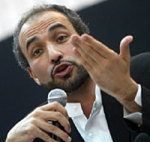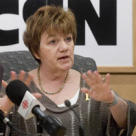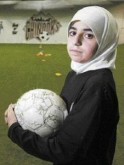 OTTAWA – A pervasive bias exists in the way Islam is studied in the West, says a prominent Muslim thinker, who is calling for sweeping changes to the way Islamic studies are taught in universities.
OTTAWA – A pervasive bias exists in the way Islam is studied in the West, says a prominent Muslim thinker, who is calling for sweeping changes to the way Islamic studies are taught in universities.
Tariq Ramadan, a visiting professor at Oxford University and one of Europe’s leading intellectuals on Islam, argues that despite a growing interest in the field, the scholarly pursuit of Islam is driven not by an interest in theology, but by fear and an obsession with the struggle against terrorism.
In the latest issue of the Canadian journal Academic Matters, Ramadan chastises universities for their “carefully orchestrated infatuation” with Islamic studies. He says the current academic focus on terrorism reduces the richness of Islamic theology into political ideology.
“The study of religious thought proper (of the theology, of its premises, its internal complexities and its development) has been relegated to a subsidiary position,” he writes. “Universities in the West must seek the kind of knowledge of other civilizations and cultures – particularly that of Islam – that is driven neither by ideological agendas nor collective fears.” What’s “cruelly lacking,” Ramadan argues, is an objective study of Islamic law, legal scholars and philosophers as well as a “historical and critical approach to Islamic history and thought.”
He goes on to criticize western scholars for ignoring the body of “fresh, compelling, audacious critical thought” emerging from contemporary Muslim societies, which are often eclipsed by controversies surrounding sharia law or the role of women. “There is a deep-down, deliberate process of evolution under way in every Islamic society in the world,” writes Ramadan. “Far from rushing to conclusions, far from populist, ideological speech, the academic world must take this process seriously, study it, and present its outlines and implications.”

 MONTREAL — No public servant – including Muslim teachers and judges – should be allowed to wear anything at work that shows what religion they belong to, leaders of Quebec’s two biggest trade union federations and a civil-servants’ union told the Bouchard-Taylor commission Monday.
MONTREAL — No public servant – including Muslim teachers and judges – should be allowed to wear anything at work that shows what religion they belong to, leaders of Quebec’s two biggest trade union federations and a civil-servants’ union told the Bouchard-Taylor commission Monday. The family of a 14-year-old girl is demanding an apology from a referee who refused to allow her to play indoor soccer while wearing a religious head scarf. But the head of referee development for Alberta’s governing soccer body says wearing hijabs can pose a threat to player safety.
The family of a 14-year-old girl is demanding an apology from a referee who refused to allow her to play indoor soccer while wearing a religious head scarf. But the head of referee development for Alberta’s governing soccer body says wearing hijabs can pose a threat to player safety.